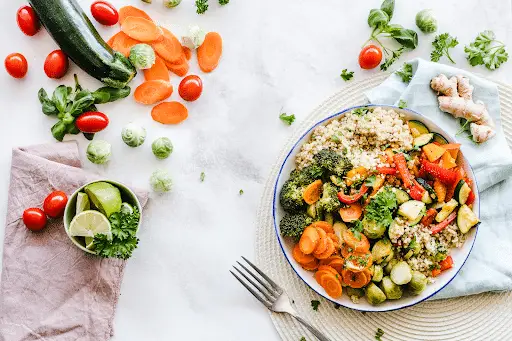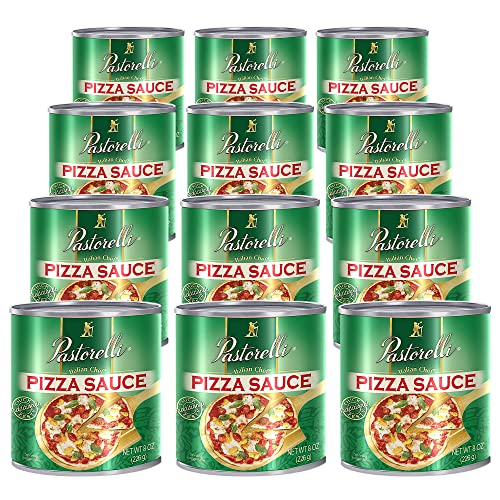Food Pairings For Different Types Of Injuries: Tailoring Nutrition To Maximize Healing
If you’ve recently sustained an injury, chances are you’re trying to decipher the best way to speed up your recovery. Healing is a complex process that’s extremely individual. But, no matter the type of injury you’ve sustained, there’s one thing that can help get you back to your usual self: a good diet.
While a balanced diet is essential for overall health, specific food pairings can play a crucial role in optimising recovery for different types of injuries, thus speeding up the healing process. Understanding what combination of nutrients you need for your injury can help you to speed up the healing process and shorten your recovery time.
In this article, we explore how tailored nutrition through food pairings can aid in the recovery of various types of injuries.

Stress and its impact on diet
According to statistics, 74% of us feel so stressed at times that we’re unable to cope. If you’ve recently sustained an injury, the physical symptoms you’re facing are often accompanied by even higher levels of stress as you worry about your recovery.
Personal injury claims are inevitably stressful as you are (quite rightly!) blaming your incident on a third party. But often, the other party will reject the claim and refuse to pay. Having to constantly go backwards and forwards can be extremely stressful. Especially if the other party argue that you’re partly to blame for the injury.
Then, to prove the injuries you’ve suffered have impacted your quality of life, you’ll often have to relive traumatic experiences to provide evidence. This once again adds to your stress levels.
To top things off, personal injury claims aren’t guaranteed which means that you might be losing sleep worrying that after all the rigmarole of bringing a claim, you’ll be left no better off.
Usually, when we’re feeling stressed, we start to reach for fatty, sugary foods. This innate desire for calorie-dense might’ve been helpful during times of food scarcity as these high energy foods would provide a quick release of glucose to help us hunt.
But if you’re wanting to recover from an injury (and not hunt for food!), reaching for these high-calorie comfort foods might be hindering your progress. Whereas excessive sugar and fat can wreak havoc on your body, optimised nutrition can play a key role in your recovery. From controlling inflammation to helping you maintain and rebuild injured tissue; a nutritious balanced diet can work wonders if you’ve had an injury.
What food pairings help different injuries?
1. Bone fractures
Broken bones need foods rich in calcium, vitamin D and protein to help them repair. For the ultimate bone booster, pair calcium-rich foods like dairy products, leafy greens, and fortified plant-based alternatives with vitamin D sources like fatty fish, eggs, or mushrooms to enhance calcium absorption.
To further turbo-charge bone healing and give your collagen production a boost, combine protein-rich food sources (think lean meats, beans and lentils) with vitamin C sources.
Food suggestion: If you’re struggling with meal ideas, we’ve got your back. For a bone booster, plate up grilled salmon with sauteed spinach and a dash of lemon juice.
2. Muscle strains and tears
If you’ve managed to tear or strain a muscle, you’ll want a meal rich in protein and antioxidants.
Where possible, try to pair lean proteins like fish, chicken or tofu with plenty of fruits and vegetables. Berries, spinach and peppers are best as they’ll also help reduce inflammation and oxidative stress.
Finish off with a side of healthy fat (like avocado or nuts) and watch as your muscle inflammation dwindles.
Food suggestion: Why not rustle up a hearty quinoa salad with diced avocado and roasted chickpeas? Quinoa provides protein and complex carbohydrates, avocado contributes healthy fats, and chickpeas offer protein and fiber. What’s more, this plant-based meal is great for your heart health, too.
3. Ligament and tendon injuries
Ligaments and joints need foods rich in vitamin C and amino acids to repair properly. To speed up the recovery process, pair vitamin C-rich foods like broccoli, citrus fruits and strawberries with collagen sources – like fish or bone broth.
Food suggestion: There’s no need to overcomplicate things with this one. Simply stir-fry some broccoli and bell peppers with lean beef or tofu to combine the essential vitamins with amino acids.
4. Joint injuries
Those with joint injuries need to focus on consuming anti-inflammatory foods. Omega-3 is important for joint injuries, so it’s a good idea to combine fish and flaxseeds with leafy greens to reduce joint inflammation and pain.
Food suggestion: Baked salmon with turmeric and ginger glaze, served with a side of steamed kale. The fatty acids in the salmon combined with the famously anti-inflammatory turmeric will have you feeling better in no time.
5. Burns
Burns can be debilitating. So, it’s important to consume as much vitamin A, vitamin C and zinc as humanly possible!
To help boost tissue repair and immune function, pair vitamin A-rich foods like sweet potato with citrus fruits that are rich in vitamin C. Then add some lean meats, seeds or legumes for a healthy dose of zinc.
Food suggestion: Spinach salad with grilled chicken, mandarin oranges, and pumpkin seeds.
Now all that’s left to do is head to the supermarket and fill your trolley full of superfoods. Trust us: your body will thank you for it.
Pizza Stone Dough Roller Slicer Sauce
We exclusively bring you lists of some gadgets related to food, drinks, beverages for your home, kitchen, picnic, parties and more. Below are highly reviewed Pizza Stone Dough Roller Slicer Sauce on sale from Amazon store. ENJOY 🙂- NO EFFORT PIZZA CUTTER – Stable vertical pressure and large cutting wheel for easy and perfectly controlled cutting process.
- GET THE PERFECT SLICE IN ONE CUT – This pizza cutter will leave you shocked with how easy it is to get a nice, clean cut through your pizza.
- COMFORTABLY FITS IN THE PALM OF YOUR HAND - This pizza slicer's unique design easily fits in your hand and also in your cutlery drawer.
- PROTECTIVE BLADE GUARD FOR EASY STORAGE – This pizza cutter wheel comes with a blade guard to keep your cutter securely stored away when you’re not using it.
- DISASSEMBLES FOR THOROUGH CLEANING AND DISHWASHER SAFE – Take it apart in 3 simple steps and put it in the dishwasher for thorough cleaning.
- EXCELLENT TEXTURE AND FLAVOR: Perfect for New York Style pizza or rolled thin and crispy, Weisenberger’s creates a deliciously chewy dough with enough strength to hold your favorite toppings.
- HIGH QUALITY INGREDIENTS: Weisenberger mills the flour used to make the pizza crust mix on site, as it has since 1865, to create a high quality and delicious pizza flour.
- SIMPLE TO MAKE: With two types of flour, salt, and yeast combined in perfect proportions, Weisenberger Pizza Mix is easy to use: just add ½ cup hot water, let rise, and bake.
- CONVENIENT SIZE: One 6.5 oz package makes a mouth-watering 12 inch pizza, or a 14 inch thin crust perfect for homemade pizza night! This listing is for a 12 pack.
- MAKE MORE THAN PIZZA: Weisenberger Pizza Crust mix is versatile enough for more than pizza. Create delicious breadsticks, calzones, cinnamon rolls, flatbread, and more!
- Measures: 7.25" x 4.5" x 1.25" / 18.5cm x 11.5cm x 3cm. Large roller: 4.125" / 10.5cm. Small roller: 2.5" / 6cm
- To help achieve a perfectly cooked crust, it needs to be of a uniform thickness. The Norpro Pastry/Pizza Roller is the perfect 2-in-1 tool for pies, cookies and pizza dough!
- The large roller smoothly rolls out dough, creating a uniform crust. Easy to use on your pastry mat/cutting board or directly in the pan!
- The small roller makes it easy to fill in dough to the edges, smooths edges and sides, and ensures uniform depth around the inner rim of the pan.
- Also ideal to crush nuts, crackers, cookies and bread crumbs!
- BEAT THE HELL OUT OF FORK – So much easier, faster and more fun than using a fork. Also not deep like a fork. Docking is the process of creating small vents in dough to prevent it from blistering and rising in large, uneven pockets during baking. The docker does take the guess work out of docking, however, since you don’t need to wonder whether you’ve added enough holes to your dough or whether it is evenly marked.
- TIME-SAVER AND LAST FOR YEARS – A dough docker is one of the stranger looking tools that you might find in your kitchen. Dough dockers are used to knock air out of your dough once it has been rolled. The dough docker will create numerous puncture holes in the dough to ensure there are no air gaps in your pizza base once it is cooked. Taking the 10 seconds to dock your dough prior to baking could save you several minutes later when it comes to popping bubbles throughout the baking process.
- NOT ONLY FOR RESTAURANT BUT ALSO FOR HOMEMADE – Generally this commercial pizza dough roller is used in the commercial pizzeria restaurant because of its speed of use. This could also be used for the homemade pizza gourment. This docker is used to easily and quickly allow bakers to dock dough just by rolling over the spiked portion back and forth with firm pressure over dough.
- PIZZA, PASTRY, TART, NAAN, PIE, FLATBREAD BUT NOT COOKIES – Pizza dough, Pastry dough, tart dough, naan bread, flat bread and pie crusts are some of the most commonly docked dough because bakers typically want them to bake as evenly as possible (particularly if there are toppings or fillings involved) in the oven. But for cookies it is a little big.
- BUY ONE GET THREE – Buy it right now, you will not only receive a dough docker, but also a pizza cutter and a pastry scraper within a beautiful gift package. You can use them all in the whole process of making pizza. Firstly, cut the dough with pastry scraper, and then roll dough docker on the dough. Lastly, cut the pizza with pizza cutter. They are also thoughtful gifts for lovers of baking.
- Size: The pizza stone measures 15" X 12" X 0.6", Golden thickness(15mm), weighs up to 6.7Lbs. Come with a free pizza peel board(11" X 15.6" x 0.35")
- Material: Made of 100% all-natural FDA-safe Cordierite stone, it is no smell and excellent thermal shock resistance. Heat-safe up to 1112°F(600℃). It could distributes heat evenly for optimal cooking, much more efficient than metal
- Multipurpose: Besides baking the fresh or frozen pizzas, this pizza stone set can be used for many other culinary explorations. Perfect for bread, cookies, stuffed calzone at home
- Clean: Scrape off any excess food with a spatula before clean. When the stone has cooled, run it under warm water while scrubbing with a brush. Never use soap or detergent on a stone, which will leave a soapy aftertaste
- Notes: In order to get a crispy pizza base, you must preheat pizza stone before making pizza; stains are Normal, the darker it looks, the better it cooks; do not use any soap or detergent by clean, otherwise you will get a soapy tasting pizza






![Are Uncrustables Vegan or Not? | [Detailed Answer]](https://foodguidez.com/wp-content/themes/schema-lite/images/nothumb-related.png)